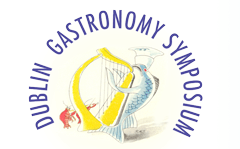Start Date
31-5-2022 11:15 AM
End Date
31-5-2022 11:30 AM
Description
Irish Farmhouse cheeses first appeared in the late 1970s, initially through restaurants and local shops (Milleens 2022, CAIS 2022). The growth of the number of farmhouse cheesemakers in Ireland from then until now, almost 50 fifty years later, results from movements of people, ideas, tastes and markets.
This paper explores what movements shaped Irish farmhouse cheeses and what motivated farmhouse cheesemakers in Ireland to start and to sustain a business. Through a case study, it is learnt that EU accession is core to the development of Irish farmhouse cheeses and that their makers are diverse in motivation, as well as ideas of success. A motivation typology reveals a tension between the craft and the commercial aspects of the work, and between two crafts: dairying and cheesemaking. At the same time, high levels of cooperation and self-imposed limits to growth demonstrate that Irish farmhouse cheesemakers follow their own routes to success.
This case study contributes to the growing body of literature on new food traditions (Boghossian 2017; Paxson 2016; Boulianne 2014), while also highlighting a part of the Irish food system that is developing methods of transaction and production praised as resilient in an uncertain, unstable food present (Vittuari et al. 2021).
Creative Commons License

This work is licensed under a Creative Commons Attribution-NonCommercial-Share Alike 4.0 International License.
DOI
https://doi.org/10.21427/1wg9-bb51
Irish Farmhouse Cheese: A New Food Tradition Born of Many Movements
Irish Farmhouse cheeses first appeared in the late 1970s, initially through restaurants and local shops (Milleens 2022, CAIS 2022). The growth of the number of farmhouse cheesemakers in Ireland from then until now, almost 50 fifty years later, results from movements of people, ideas, tastes and markets.
This paper explores what movements shaped Irish farmhouse cheeses and what motivated farmhouse cheesemakers in Ireland to start and to sustain a business. Through a case study, it is learnt that EU accession is core to the development of Irish farmhouse cheeses and that their makers are diverse in motivation, as well as ideas of success. A motivation typology reveals a tension between the craft and the commercial aspects of the work, and between two crafts: dairying and cheesemaking. At the same time, high levels of cooperation and self-imposed limits to growth demonstrate that Irish farmhouse cheesemakers follow their own routes to success.
This case study contributes to the growing body of literature on new food traditions (Boghossian 2017; Paxson 2016; Boulianne 2014), while also highlighting a part of the Irish food system that is developing methods of transaction and production praised as resilient in an uncertain, unstable food present (Vittuari et al. 2021).
